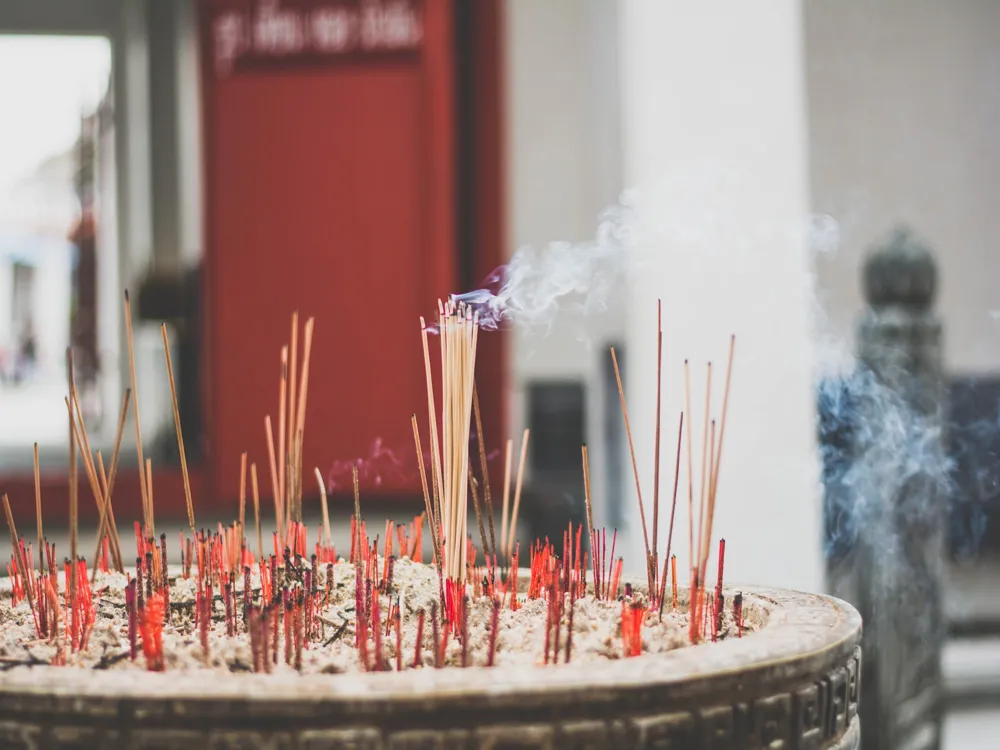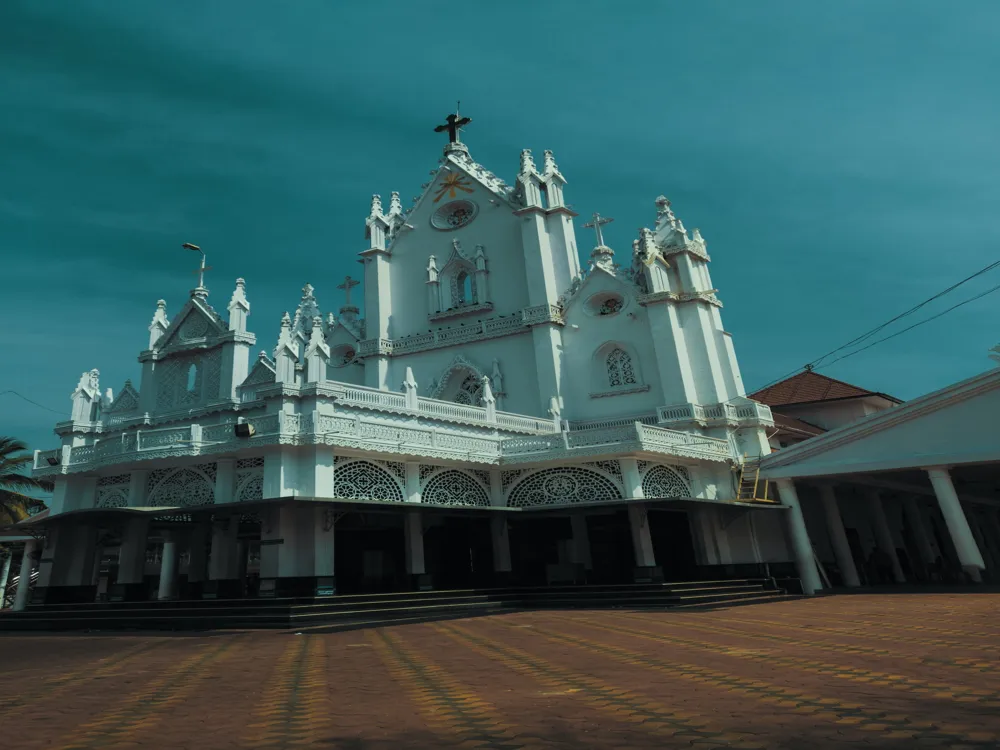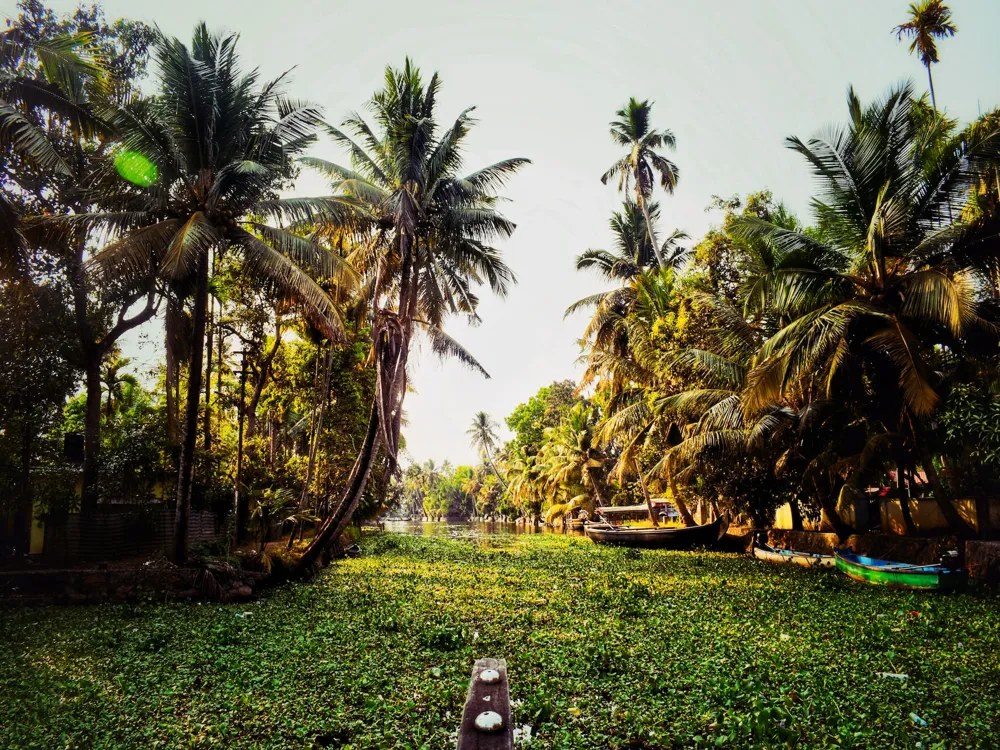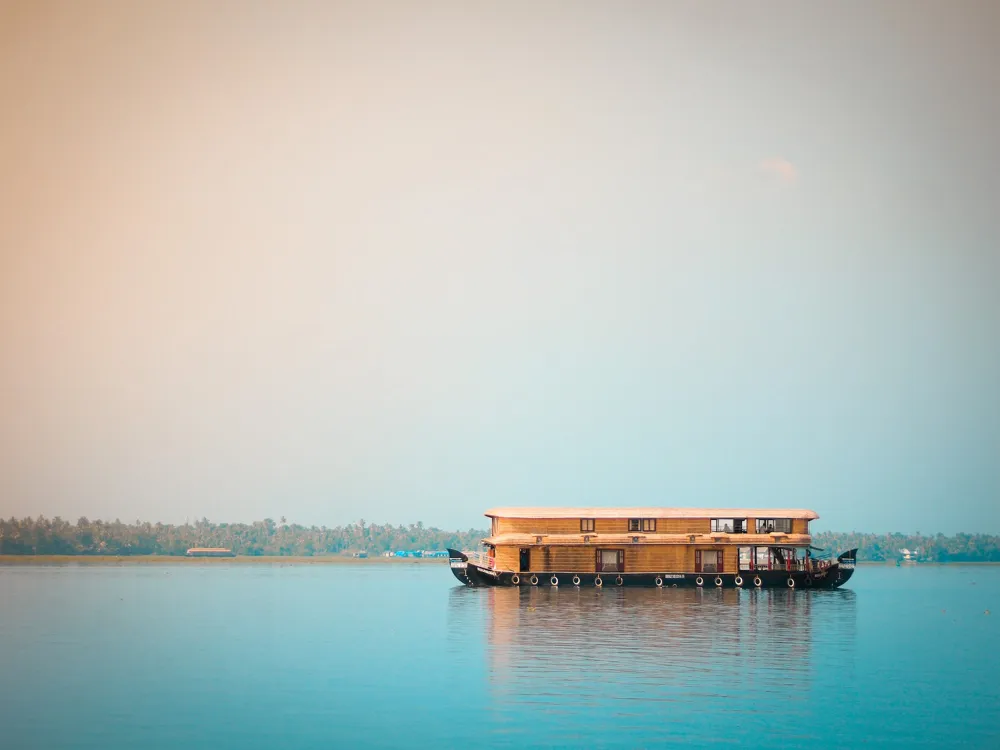Nestled in the serene landscape of Kottayam, Kerala, the Poonjar Palace stands as a magnificent testament to the rich cultural heritage and architectural marvels of the region. This historical edifice, dating back centuries, is not just a palace but a repository of traditions, art, and history, making it a must-visit destination for history enthusiasts and travelers alike. The palace's history is intricately linked with the royal family of Poonjar, whose lineage can be traced back to the Pandya kings of Tamil Nadu. This ancestral home, steeped in legend and lore, offers a unique glimpse into the regal lifestyle and the architectural splendor of the era. The Poonjar Palace is renowned for its exquisite collection of antiques and artifacts, which include palanquins, royal furniture, lamps, sculptures, and a fascinating array of weaponry. The palace complex, an architectural masterpiece, is built in the traditional Kerala style, with its sloping roofs, wooden walls, and intricate carvings, reflecting the architectural brilliance of the time. The Nalukettu, a traditional homestead, is a striking feature of the palace, showcasing the socio-cultural aspects of traditional Kerala life. The palace also houses a remarkable temple, dedicated to the Hindu gods and goddesses, adorned with intricate carvings and murals that depict various mythological stories. The Poonjar Palace is an architectural marvel that beautifully encapsulates the essence of traditional Kerala architecture. The palace's design is a harmonious blend of functionality and aesthetics, characteristic of the architectural style prevalent in Kerala during ancient times. One of the most striking features of the palace is the extensive use of wood, a hallmark of Kerala's architectural heritage. The palace showcases intricate wooden carvings, beautifully crafted doors and windows, and ornate ceilings, each telling a story of the skilled craftsmanship of the era. The layout of the palace is based on the traditional 'Nalukettu' style, where the building is constructed around a central courtyard. This design not only provides natural lighting and ventilation but also has a socio-cultural significance, serving as a gathering space for family and community activities. The walls of the palace are adorned with exquisite murals and frescoes, depicting scenes from Hindu epics and folklore, reflecting the religious and cultural ethos of the time. The palace's roofing system is another architectural marvel, with its sloping tiled roofs designed to withstand the heavy monsoons typical of the region. The use of locally sourced materials in the construction of the palace is a testament to the sustainable architectural practices of the time. The wood used in the palace is known for its durability and resistance to termites, ensuring the longevity of the structure. The palace also features an elaborate system of rainwater harvesting, showcasing the ingenuity of ancient architectural practices in resource management. The blend of beauty, functionality, and sustainability in the architecture of the Poonjar Palace makes it a shining example of Kerala's architectural heritage. The ideal time to visit Poonjar Palace is during the cooler months from October to March. During this period, the weather is pleasant, making it comfortable for tourists to explore the palace and its surroundings. Opting for a guided tour can enhance your visit to the Poonjar Palace. Knowledgeable guides provide insightful information about the palace's history, architecture, and the artifacts displayed, offering a deeper understanding of this historical site. Visitors are encouraged to check the photography rules before visiting. While photography may be allowed in certain areas, it might be restricted in others, particularly in the areas housing antique collections. It is important to dress modestly and respect the cultural norms while visiting the palace, especially since it houses a temple and is a site of historical and cultural significance. Poonjar Palace, located in the Kottayam district of Kerala, is well-connected and accessible by various modes of transportation. The nearest airport is the Cochin International Airport, which is about 76 kilometers away. From the airport, visitors can hire a taxi or take a bus to reach the palace. The nearest railway station is Kottayam Railway Station, situated approximately 40 kilometers from the palace. Regular buses and taxis are available from the railway station to the palace. Additionally, the palace is well-connected by road, and visitors can opt to drive or hire a taxi from major cities in Kerala to reach the destination. Read More:Overview of Poonjar Palace of Kottayam, Kerala
Architecture of Poonjar Palace
Tips When Visiting Poonjar Palace
Best Time to Visit
Guided Tours
Photography Rules
Respect Cultural Norms
How To Reach Poonjar Palace
Poonjar Palace
Kottayam
Kerala
₹ 24,670 onwards
View kottayam Packages
Kottayam Travel Packages
View All Packages For Kottayam
Top Hotel Collections for Kottayam

Private Pool

Luxury Hotels

5-Star Hotels

Pet Friendly
Top Hotels Near Kottayam
Other Top Ranking Places In Kottayam
View All Places To Visit In kottayam
View kottayam Packages
Kottayam Travel Packages
View All Packages For Kottayam
Top Hotel Collections for Kottayam

Private Pool

Luxury Hotels

5-Star Hotels

Pet Friendly





















